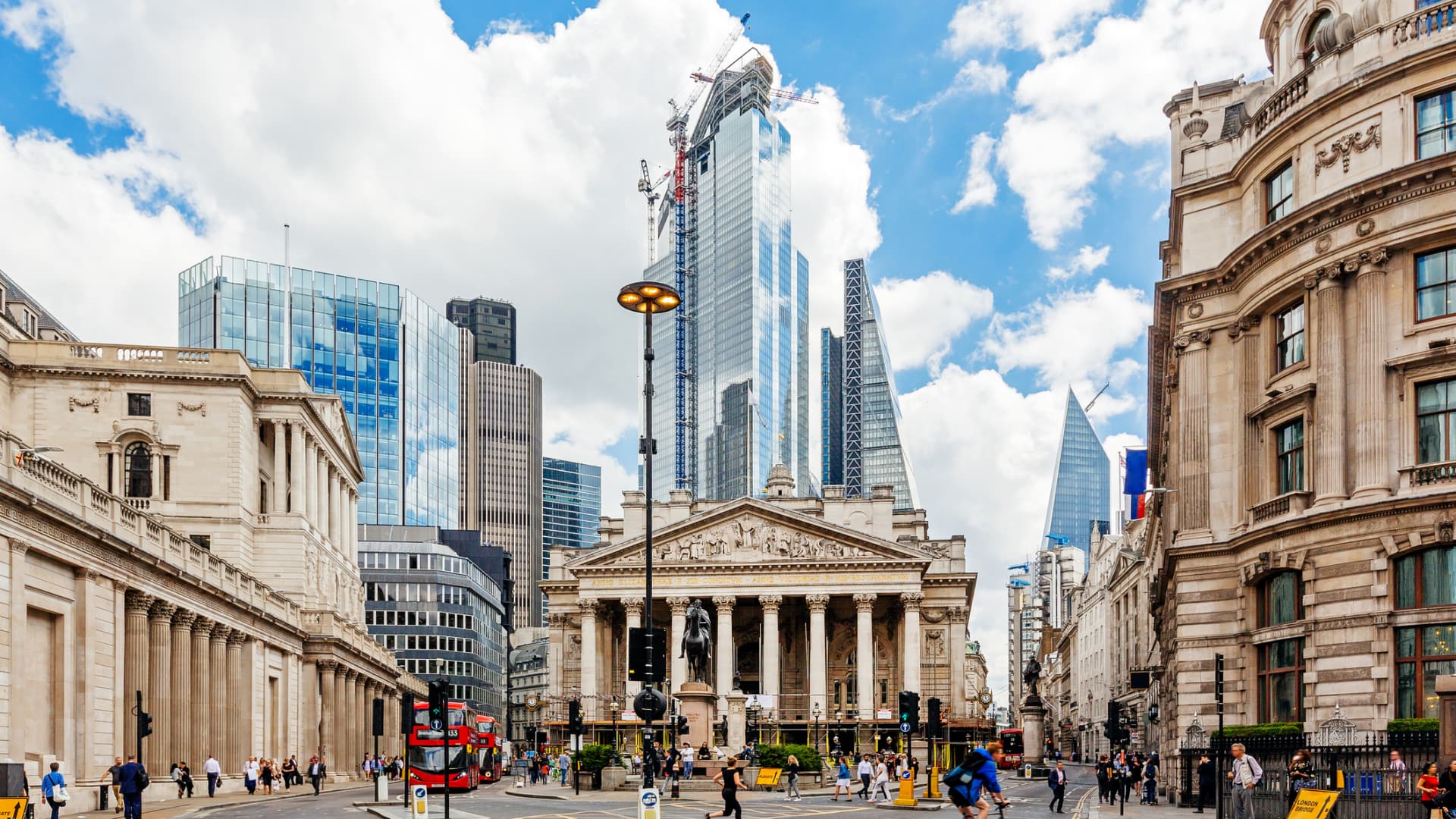In August, the Bank of England increased interest rates for the 14th time in a row.
Alexander Spatari | Moment | Getty Images
LONDON — U.K. headline inflation cooled sharply in July to an annual 6.8%, but the core consumer price index remained unchanged, posing a potential headache for the Bank of England.
The headline CPI reading was in line with a consensus forecast among economists polled by Reuters, and follows the cooler-than-expected 7.9% figure of June. On a monthly basis, the headline CPI decreased by 0.4% versus a consensus forecast of -0.5%.
However, core inflation — which excludes volatile energy, food, alcohol and tobacco prices — stayed 6.9%, unchanged from June and slightly above a consensus forecast of 6.8%.
“Falling gas and electricity prices provided the largest downward contributions to the monthly change in CPIH and CPI annual rates; food prices rose in July 2023 but by less than in July 2022, also leading to an easing in the annual inflation rates,” the Office for National Statistics said.
“Hotels and passenger transport by air were the classes that provided the largest offsetting upward contributions to the change in the rate.”
The Bank of England’s monetary policy meeting earlier this month produced a split vote to hike the main interest rate by a quarter percentage point to a 15-year high of 5.25% — in the 14th consecutive increase to the key rate.
The Monetary Policy Committee gave little indication that the era of high interest rates was likely to end soon, vowing to “ensure that Bank Rate is sufficiently restrictive for sufficiently long to return inflation to the 2% target.”
Along with inflation, central bankers have been keeping a close eye on the U.K.’s tight labor market, which data on Tuesday indicated might be beginning to loosen.
The unemployment rate rose to 4.2% in June, climbing above expectations to its highest level since October 2021. Analysts noted that the participation rate broadly held steady, while the employment rate declined, signaling a weakening in labor demand.
Pay growth continues to pose headaches for policymakers as wages excluding bonuses grew by 7.8% year-on-year in the three months to June, the fastest growth rate since records began in 2001, according to the Office for National Statistics. However, this still remained below inflation, which sat at 7.9% in June.
With headline inflation falling to 6.8% and wages growing at record pace, the U.K.’s prolonged cost-of-living crisis may be showing signs of abating, said David Henry, investment manager at Quilter Cheviot.
“Households are still under immense pressures however, and inflation isn’t going to fall dramatically, but it will be pleasing to millions to see their take home pay now seeming to keep up with inflation,” he added.
Henry noted that the headline numbers only tell “a fraction of the story,” with consumers continuing to face soaring food prices and core inflation refusing to budge meaningfully.
“With the surprise in earnings growth added in and the economy holding up in the face of adversity, the Bank of England will probably determine that more interest rate rises are required to get the job done,” he said.

